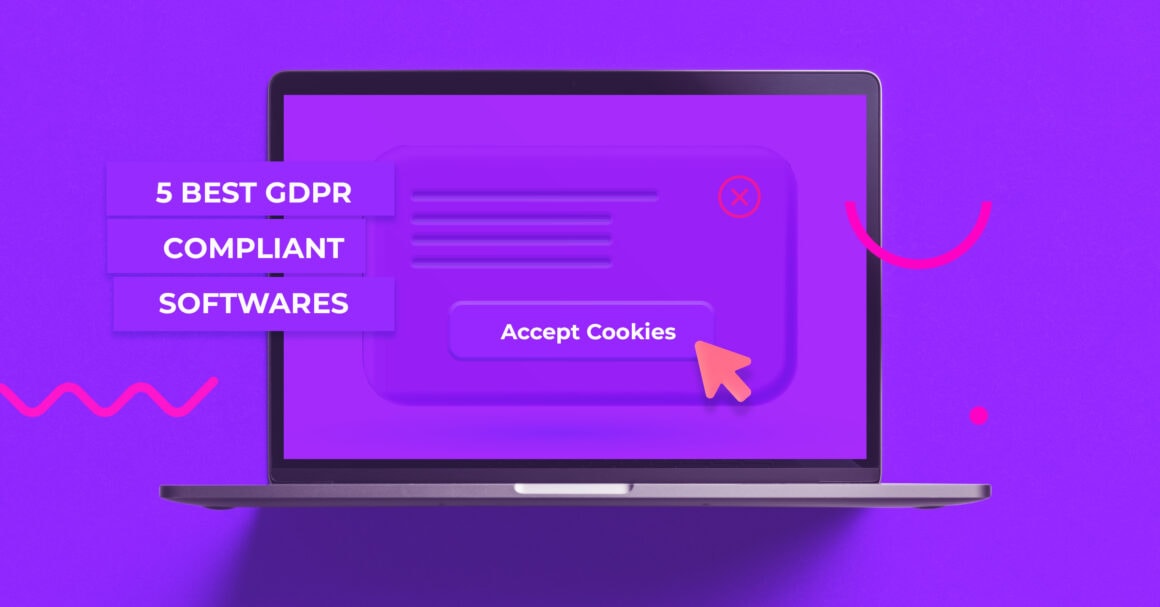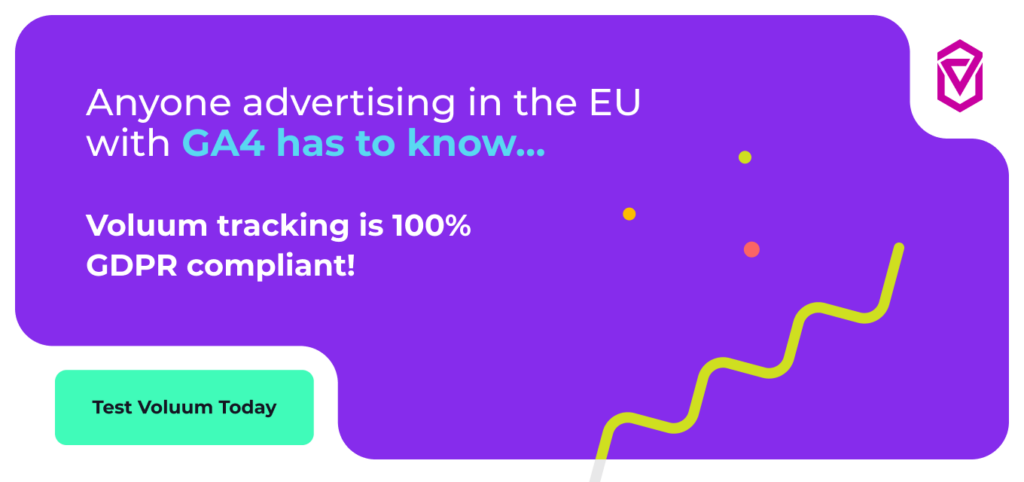GDPR places significant restrictions on how you can use tools to track and collect user data. And while there is no universal definition of what a “GDPR compliant analytics software” is, following several fundamental principles like acquiring consent, not transferring EU personal data anywhere outside the EU, and handling data securely brings you closer to the goal.
Expanding public awareness of privacy regulations along with growing data safety expectations keep turning up the pressure for online marketers to comply with laws like GDPR. But the question of where to turn to in order to find the best tools is a whole other issue – especially when collecting and analyzing data is critical to your business.
This article should help shine a light on some worthy solutions.
A brief history of GDPR
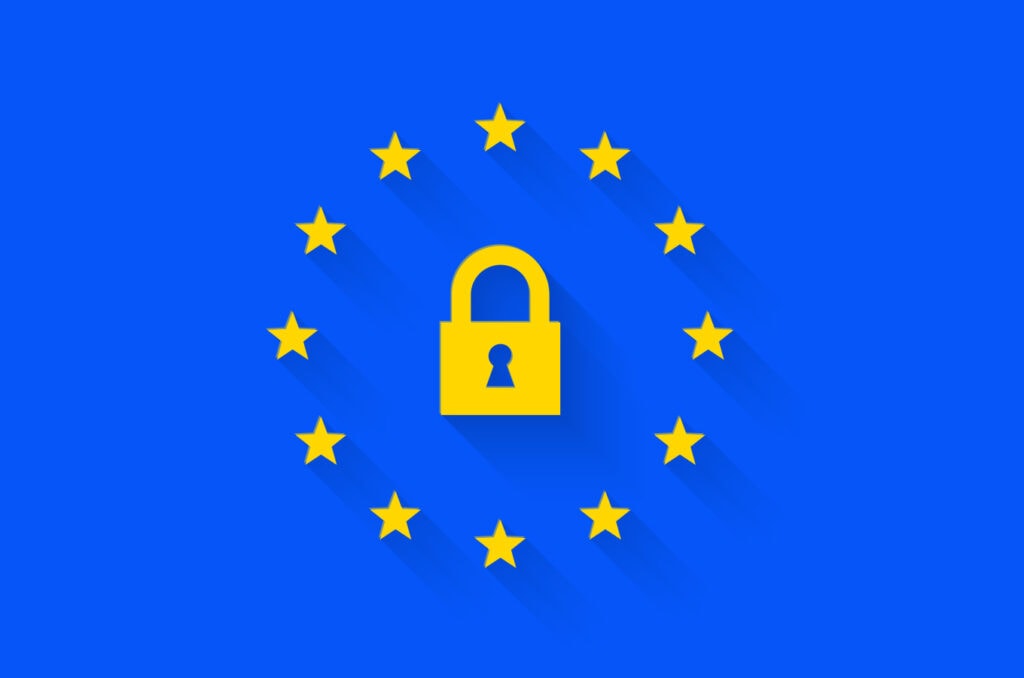
The right to privacy first appears in the 1950 European Convention on Human Rights, which states that everybody has the right to respect for their private and family life, home, and correspondence. This became the basis for the EU to create legislation to protect this right.
In 1995 the EU adopted the Data Protection Directive to regulate the processing of personal data and its free movement as the Internet was in its infancy. Twenty-one years later, as technology transformed our lives in unforeseen ways, the laws required a review and subsequent change. Hence the Directive was replaced with the General Data Protection Regulation (GDPR) in 2016. Following the creation of GDPR, member states had two years to adopt the policy, and the set of privacy laws officially came into effect in May 2018.
GDPR is designed to give individuals more control over what happens to their data and how it’s collected, used, and processed online. The set of rules also binds organizations to stricter standards for securing personal data collected from users. This includes using technological safeguards like encryption and higher legal thresholds to justify data collection.
Important note:
Although GDPR is a European law, its requirements apply to any digital entity processing data of EU citizens regardless of its location.
For instance, even if your company is based in the US with no physical presence in the EU, but you’re processing EU citizens’ data or you’re selling products online in the EU – GDPR concerns you as well. As we all know, the digital world is not confined by political borders.
The good news is that in case of inspection, you simply need to prove to officials that you’re at least actively working towards accountability and compliance. For example, by having a clear privacy policy or a dedicated Data Protection Officer (an individaul responsible for educating the company and its employees about compliance, training staff, and conducting regular security audits). However, if you do fail, you will be penalized and have to pay about 20M euros or 4% of your company’s annual global turnover – depending on which is higher.
What does it mean to be GDPR compliant?
There’s no one legal definition of what makes software GDPR compliant. But in general, you could say that if you’re processing any data you need to do so according to seven protection and accountability principles outlined in Article 5.1-2. They’re the so-called Key regulatory points of the GDPR:
- Lawfulness, fairness, and transparency — when you process data you need to do so in accordance with the law and in a way that’s fair and transparent to your subject.
- Purpose limitation — the reasons why you need the data collected must be legitimate and specified to the subject.
- Data minimization — collect and process only as much data as necessary.
- Accuracy — keep personal data accurate and up-to-date.
- Storage limitation — storing personally identifying data for as long as necessary for the specified purpose.
- Integrity and confidentiality — data must be processed securely with integrity and confidentiality (e.g. by using encryption).
- Accountability — you as the data controller must demonstrate GDPR compliance with all of these principles. The data controller is responsible for being able to demonstrate GDPR compliance with all of these principles.
When it comes to staying in line with GDPR you also need to consider your data subject’s right to erasure. All subjects have the right to request their data to be deleted where it’s no longer necessary in relation to the purpose of collecting or processing. And the data controller is required to answer that request without any undue delays.
Another important factor to consider: your data subject must grant you free consent, which means that you as the data controller must give people genuine choice and control over how you use their data (meaning respecting their right to erasure, for example). If the individual has no choice and/or control over their data, then the consent is not freely given and therefore invalid, meaning the collected data was acquired illegally.
It all sounds scary and finding clear-cut examples or explanations of what it all means in the day-to-day is not easy, leaving many business owners confused. Luckily, there are resources online and that’s why you are reading this article. To find tools you can rely on.
Is Google Analytics GDPR compliant?
It’s by far the most popular and probably most talked about software out there. Google Analytics is free (an important advantage for some) and allows you to analyze website traffic and gather valuable data about user behavior.
Over the past few years Google Analytics, along with its parent company Google LLC, has been on the radar of privacy activists, with many filing complaints. Complaints like the one failed by the Panoptykon Foundation in Poland, claiming that Google collected data unnecessarily to serve targeted ads, with no control over its further use among other things.
In lieu of the many controversies, several EU-based organizations started turning away from Google Analytics, even though there’s no universal ruling; the Austrian, French, Italian, and Dutch data protection authorities (DPA) have claimed that the use of the default setup of Google Analytics is not fully GDPR compliant. You could technically set it up to be GDPR compliant, but you can’t change where data is stored which is the key compliance issue. Google Analytics stores user data – including that of EU residents – on US-based cloud servers.
The laws of the country where data is stored influence how it’s processed, which means that the EU might not be able to ensure the safety of data shared by its citizens if it’s stored overseas.
There are many more reasons why Google Analytics may not be considered a GDPR-compliant software if you’re interested I can recommend articles like this one.
Besides not being in line with pivotal privacy laws, Google Analytics also happens to fall short in other areas compared to other tracking tools out there like Voluum. Especially when it comes to actually managing, optimizing, and even automating your campaigns on top of just analyzing them. And those are areas Voluum specializes in.
So, you can’t trust the most popular industry giant, what tools are left?
List of the best GDPR Complaint analytics tool
Voluum
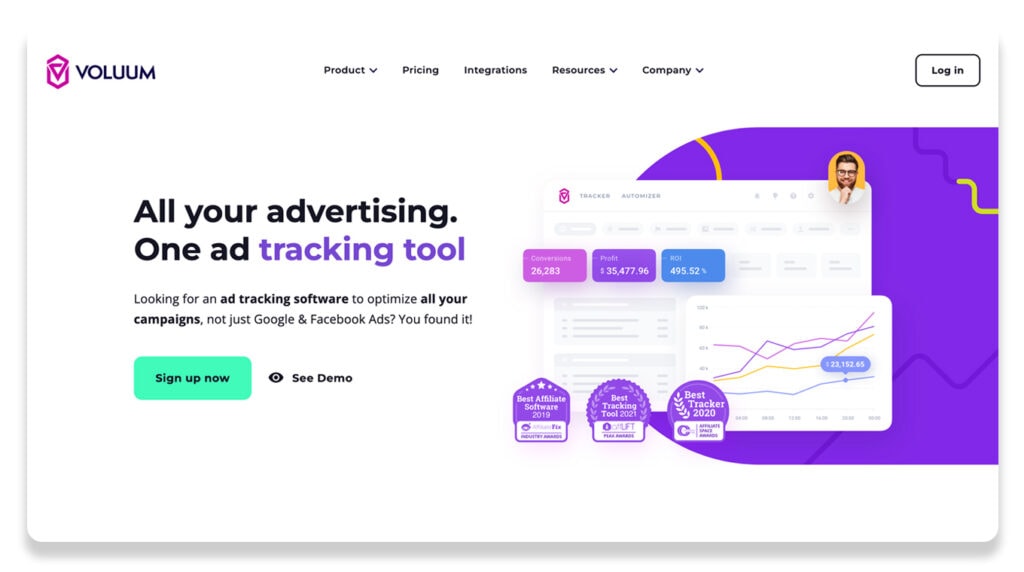
Voluum is not just your average tracker – without a doubt, it’s one of the best ones out there. But how can you be sure it’s GDPR compliant?
Well, for one it’s the product of an EU-registered company, so it simply has to be. And even though Voluum collects detailed data about every click, conversion, and impression, it does so by leveraging information that is already available like IP addresses, user agent, or timestamps.
Furthermore, GDPR compliance is ensured by IP Anonymization and our Opt-out option. The first option alters the way information about the IP address is stored to prevent fingerprinting identification- IPs are altered to a shorter version and only anonymized data shows in reports without a way to reverse it. Opt-out is applicable for end users who can set it in their browser letting us know they do not wish to be tracked. No user-identifying data is required for fine-tuning campaigns and that’s how we operate.
Need more convincing? All the details are further outlined in this article
- Cookie-safe tracking
- Automizer for API integrations with all major traffic sources
- Real-time reporting
- Split testing
Plausible
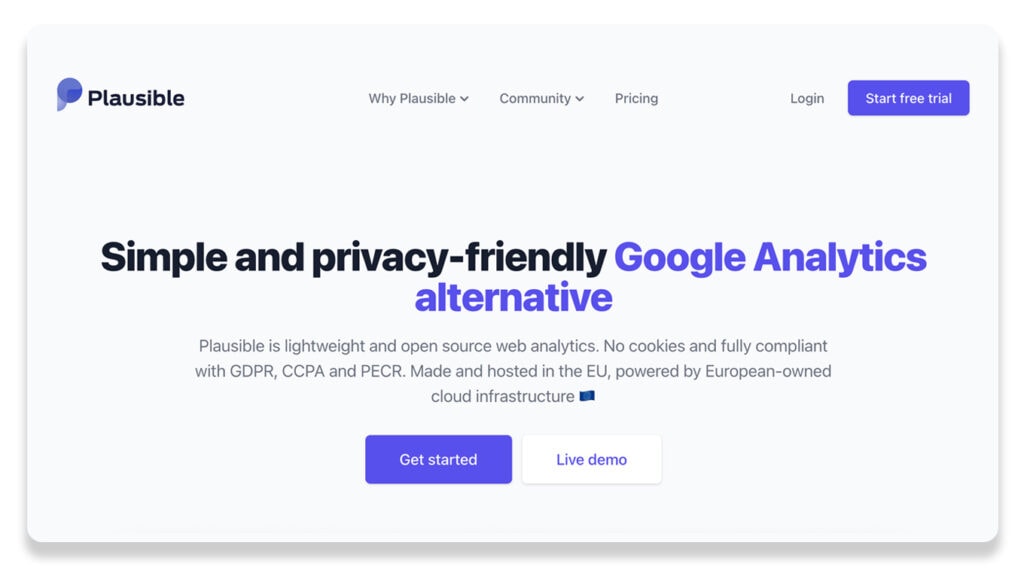
Plausible is an awesome Google Analytics alternative for content marketing teams or any individual looking for a lightweight tool for managing small sites.
Made and hosted in the EU, Plausible makes it impossible to identify individual users. Furthermore, it doesn’t collect any data such as IP addresses so there’s no need to acquire permission from users. But it gives you all the important campaign insights without slowing down your site and in an easy-to-digest way.
- Open source
- Cookie-safe tracking
- EU-cloud hosting
Matomo
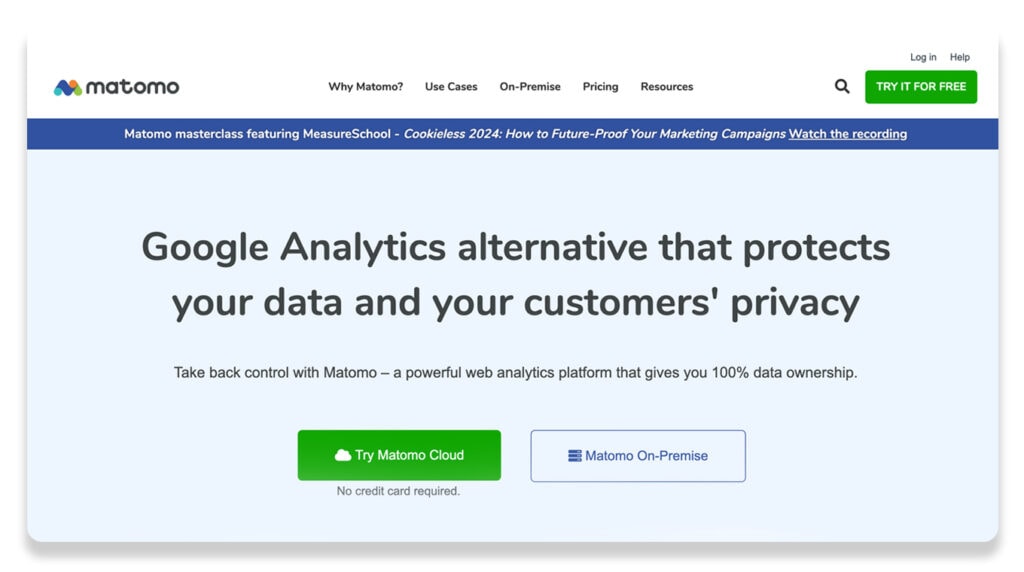
Matomo is one of the most popular alternatives to Google Analytics since it allows users to gather a comparable amount of data. And when first starting out, new users can import existing GA data to make the transition easier.
Matomo offers first-party cookies by default and its many features make it a suitable solution for all sorts of businesses. GDPR compliance is ensured by either self or EU-registered cloud hosting.
- Custom alerts
- Tag managers
- Media analytics
- A/B testing
Fathom
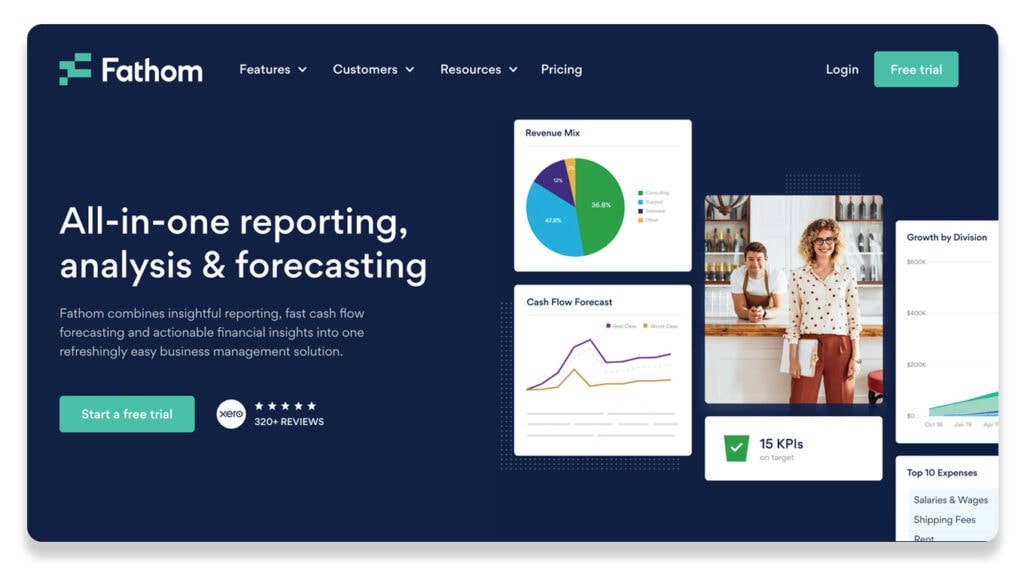
Even though Fathom is based in Canada, privacy and safety are at its core and they’re offering EU-hosting.
This one is great if you only require basic web analytics. Fathom is an easy, single-page application that will help you track all the basic data most people need, but it won’t help you gather much detail on user behavior. Are you beginner? This one is for just getting acquainted with analytics.
- Fast and the lightweight tracking script
- Email reports
- Multi-domain tracking
Countly
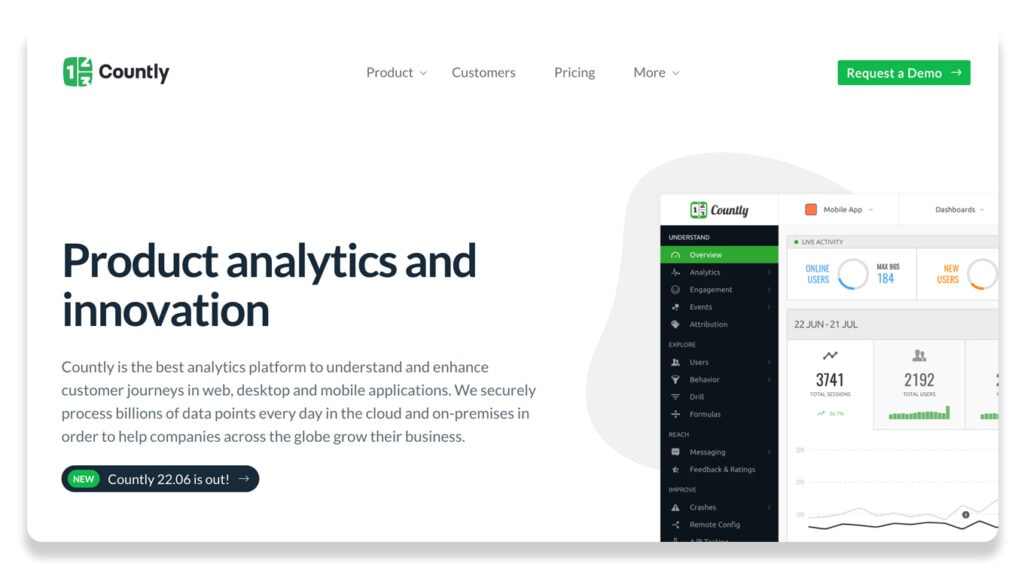
This one is exciting for mobile app developers working on multi-platform apps. Countly is a great option for understanding product performance and user journeys in detail.
You can deploy Countly with your infrastructure or EU-based cloud servers so data is stored within GRPD jurisdiction. Even though it doesn’t offer cookie-proof solutions, consent systems are pre-built.
- Push notifications and crash analytics
- A/B testing
- Easy data grouping
There’s no going around GPDR
Recognizing user privacy and treating their data with all due respect is, and will forever remain a key part of the Internet landscape. And that’s good.
But GDPR compliance is really about having well-rounded privacy-driven policies, not just using good softwares. You need to make sure that your entire business operates in compliance with GDPR by putting the appropriate procedures in place. Procedures like making sure that you’re not collecting unnecessary data, being transparent, securely storing data, and so on. The right tool for analytics is just one piece of it.
And while the proposed softwares are all highly recommended – there’s one thing worth noting. They’re all advertising themselves as simply alternatives to Google Analytics, and rightfully so but they’re all just that. An alternative for a tool that’s not as great as once considered. While simple tools with access to basic analytics can be useful, that’s not all that’s out there.
There’s definitely one tool that is about so much more than just analytics while satisfying every data privacy and GDPR standard. And that’s Voluum.
On one hand, Voluum gives you access to robust real-time reporting, while also allowing you to manage your campaigns and continuously improve their performance. All from a single dashboard. With Voluum you get to react to what’s happening and take traffic to where it turns to profit. And most importantly, automate your work so your ads keep improving even when you’re not looking. What’s more to ask?
So, when choosing a tool to analyze your traffic…
Why not go for the full package?
No banner with provided ID found
